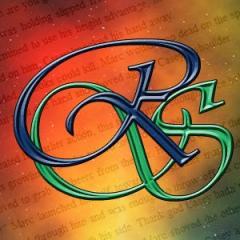Writing Tip Grammar Rodeo #9
It's been a while since we had a Grammar Rodeo from Cia, but this month that feature has returned. Let's see what Cia has to say about.... NUMBERS!
Let’s talk numbers! 01 001 1 100 0... no that’s not what I mean. LOL One of the subtle details that refines writing is how an author addresses numbers. Let’s face it, you can’t write anything at length without running into this issue because our lives are dictated by things like time and money.
Numbers in Fiction
Numbers at the beginning of a sentence. Basically a no no. Write these out instead of using the numerals, but if that doesn’t work, rephrase. You really don’t want to start a sentence with a numeral.
Zero through One hundred. You’ll notice I spelled those out. That’s the rule! Zero through one hundred is written out. 101 and more, you can write the numerals. But what if I’m talking about hundreds, or thousands? Well, if it’s an odd number like 4759 you write it out with numerals, but if it’s a whole number like forty-seven thousand or five hundred, you’d spell those out.
Dates. Years: Write these as numerals, though you could use twenty-twenty instead of 2020 if you really wanted to, but odd years, like 1999 would be awkward spelled out so numerals are just fine. Abbreviated years: You need a single apostrophe that is a ‘closed’ quote (the quote that comes at the end of closed’ because it’s taking the place of the missing numerals) such as ’99. Decades: 90s is plural for the years involved, folks, so no apostrophe needed! Months and days: Spell the month and write the day as a numeral when they are placed together, like December 21. If you are just using the date without the month, you spell it out like, “We’re going on vacation on the twenty-first.”
Time: Not too complicated. If you’re doing a general timeframe, “Meet me at five thirty” you write it out. Same thing for “Meet me at a quarter to five” or any other variation of quarter of, half past, etc... and if you use o’clock you always spell out the time instead of using numerals. Where this does get a little tricky: The rule is if the time is emphasized, you can write it out as numerals. “Meet me at the airport on December 21 at 5:55 p.m.” but that’s more of a judgement call than a do or don’t rule.
Noon and midnight. Always spell these out instead of using 12:00 a.m or p.m..
Money. Oh, so complicated this seems! Not really, though. Follow the zero through one hundred spelling rule and write out any money that can be written out like ninety-nine cents or five hundred dollars. If you are writing out a dollar and cents number, you can use numbers such as $500.95. If you have a number like 4759, you can write it out as $4,759 but don’t include the decimal and cents numerals unless you have other numbers that include them, like: “She charged me $500.95 to $4,759.00 for grammar lessons” for example.
Addresses. There are three main components of this, and it’s not too hard. Specific addresses: Building numbers always precede the street name when you’re giving an address. Like: I live at 1234 Fifth Avenue. (Ha! I’m not really giving out my address!) If you’re naming a location, you would spell it out, like “One Police Plaza”.
So those are the most common number usages I’ve seen in fiction. What about you? Anything you don’t think I covered and still need to know?
-
 8
8



14 Comments
Recommended Comments
Create an account or sign in to comment
You need to be a member in order to leave a comment
Create an account
Sign up for a new account in our community. It's easy!
Register a new accountSign in
Already have an account? Sign in here.
Sign In Now